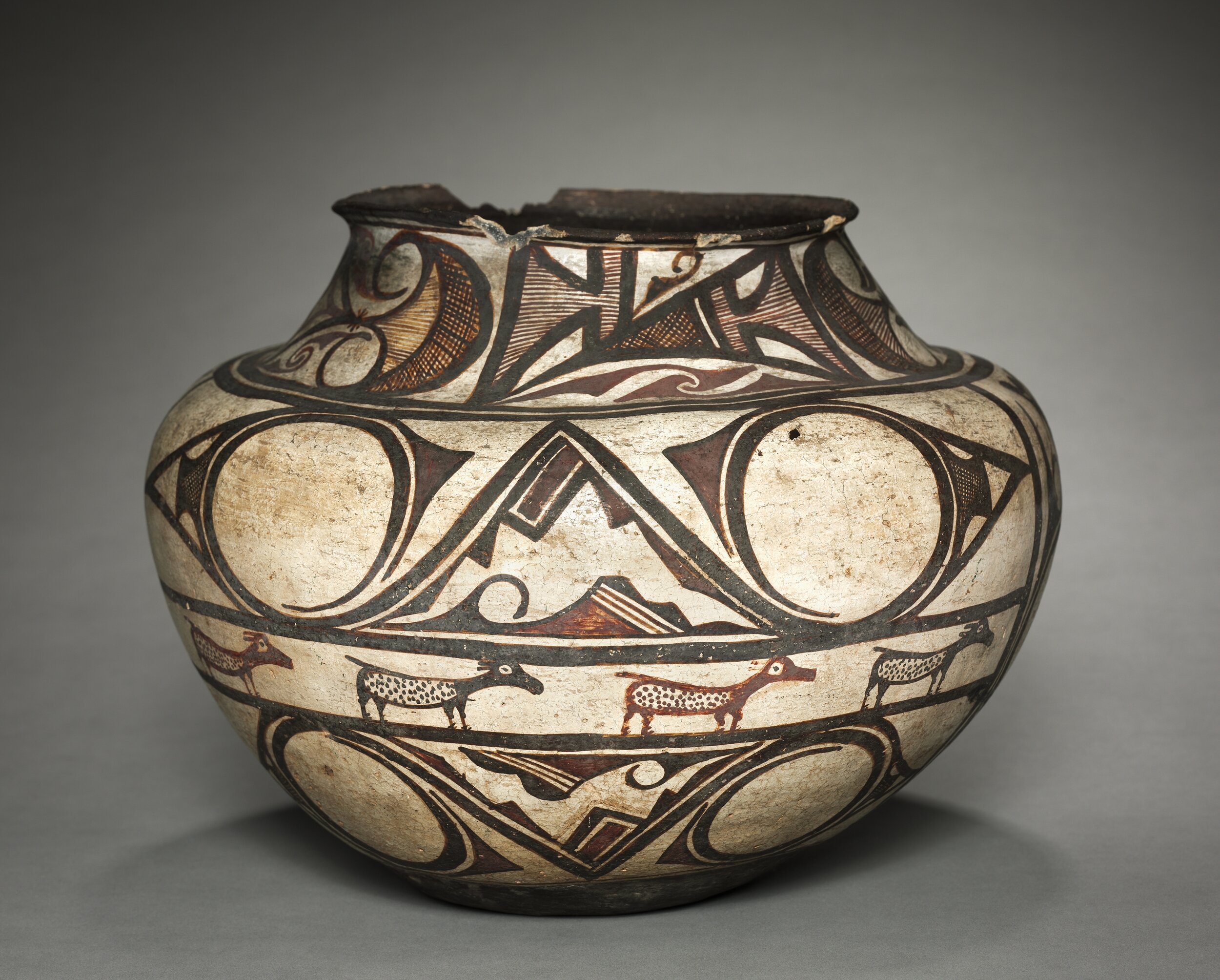STOP Act Information - January 2023
This information is current as of January 16, 2023. We will provide updated info as it becomes available.
THE STOP ACT HAS PASSED.
WHAT DO I NEED TO KNOW? WHAT DO I NEED TO DO?
The Safeguard Tribal Objects of Patrimony Act of 2021 (the H.R. 2930 version) was passed by the Senate on November 29, 2022 and was signed into law by President Biden. The stated purpose of the law is to stop the export and facilitate the international repatriation of cultural items prohibited from being trafficked by the Native American Graves Protection Act (NAGPRA), and archaeological resources prohibited from being trafficked by the Archaeological Resources Protection Act of 1979 (ARPA) or any other Federal law or treaty. The STOP Act explicitly prohibits the export of items obtained in violation of NAGPRA, ARPA or any other federal law and in addition creates an export certification system for other items that may be exported but only after receiving export certification from the Interior Department.
Many ATADA members have requested guidance on how to navigate the export of Native American or Native Hawaiian objects after passage of the STOP Act. We follow with the best guidance that we can offer at this early stage.
Detailed guidance can’t be offered yet as to which Items require export certification or which items ultimately will not require any certification at all to export. The definitions contained in the law itself of items covered are vague, and we do not yet have the final or even proposed implementing regulations for STOP to give us further guidance.
It will take a year, perhaps more, for the Interior Department to go through the process of issuing proposed regulations all the way through to the adoption of final regulations. In the meantime, there will be no functioning export certification system, so compliance with STOP’s export certification provisions cannot yet be expected from exporters as to “Items Requiring Export Certification” under the law.
At this point, the only provisions of STOP that are now fully effective and enforceable are those provisions related to the ban and penalties attached to the export of an “Item Prohibited From Exportation (essentially items being “trafficked” in violation of NAGPRA, ARPA or any other Federal law).
Accordingly, the best advice right now is to be very cautious if you are exporting an item. Don’t attempt to export any item that you think may have been obtained in violation of NAGPRA, ARPA or any other Federal law. Of course, you should have been following such advice even before the passage of STOP. While we don’t see a legal justification for U.S. Customs to change its procedures before STOP regulations are finalized, it is also possible that Customs could raise questions about exports of antique or prehistoric objects based upon its own interpretation of authority derived from STOP’s export ban on Items Prohibited from Exportation. So again, be very cautious when considering the export of an item which could reasonably be characterized as a “cultural item” or “archaeological resource” under NAGPRA or ARPA.
Provenance has always been important, but under STOP it will be critical if you intend to export an item. Good documentation could be the key to a smooth export process.
Until we have final implementing regulations, the best course of action is to be fully prepared to document the provenance of all the Native American and Native Hawaiian items in your inventory or collection to the greatest extent possible. The best provenance, although admittedly rare, will provide documentation of the original acquisition of the piece from a tribe, tribal member or Native Hawaiian, or the original discovery of an archaeological piece. For example, a photo of a Great Aunt at Acoma Pueblo in 1905 holding the dough bowl she just purchased, or a photo of a Great Grandfather holding an Anasazi pot that he found on his ranch in Southern Colorado in the 1930’s. The next best provenance would be documentation of an early acquisition history, the earlier the better. For example, the Harvey House souvenir shop receipt a Great Aunt received for a piece purchased in 1915; or the receipt for a Hawaiian object that a Great Grandfather purchased at an antique shop in Honolulu in 1895. If you have a documented provenance before 1979, then the object cannot have been trafficked in violation of ARPA; if you have a documented provenance before 1990, then the object cannot have been trafficked in violation of NAGPRA. It is clear that objects lacking any credible provenance at all will not be eligible for export certification under STOP, and certain types of objects with only a very recent provenance may be unlikely to receive export certification. Objects that can be characterized as funerary items are very unlikely to receive export certification as in most cases the exporter will be unable to meet the burden of proof of a “right of possession” to the such object.
Note: The information contained on ATADA’s website and in e-mail communications to its members is provided for informational purposes only and should not be construed as legal advice on any subject matter. Anyone seeking specific legal advice or assistance should retain an attorney.









